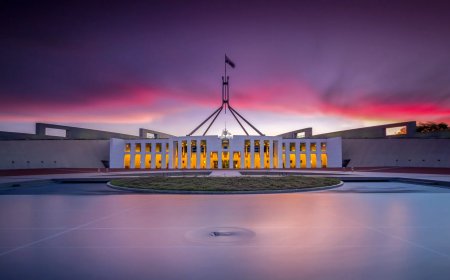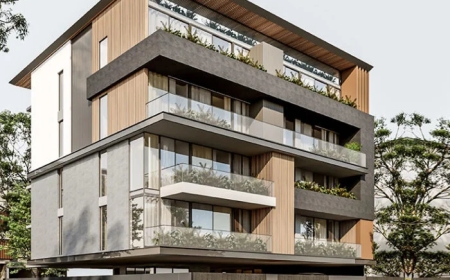Real Estate Trends to Watch in 2025
Explore the key real estate trends shaping 2025, including sustainability, technology integration, and shifting buyer preferences. Learn what to expect in the year ahead.

As we move deeper into the decade, the real estate landscape is undergoing significant transformation. The year 2025 promises to be one of evolution, innovation, and adaptation for both buyers and sellers. Whether you are a homeowner, investor, or industry professional, staying informed about upcoming trends can help you make smarter decisions in the property market.
Lets take a closer look at the most important real estate trends to watch in 2025.
1. Growing Demand for Sustainable Homes
Sustainability is no longer just a buzzwordits becoming a key factor in property decisions. In 2025, more buyers are prioritizing eco-friendly features when purchasing homes. This includes energy-efficient appliances, solar panels, rainwater harvesting systems, and buildings constructed with green materials.
Governments and developers are also stepping up their efforts by promoting eco-conscious projects and offering incentives for energy-efficient housing. As climate awareness increases, expect demand for sustainable homes to continue rising.
2. Smart Home Technology Goes Mainstream
Technology continues to reshape how people live. In 2025, smart homes are expected to become standard in many parts of the world. From automated lighting and temperature control to smart security systems and voice-activated assistants, buyers are now seeking tech-enabled living spaces.
These innovations not only enhance convenience but also contribute to energy efficiency and improved home management. The integration of AI and IoT devices will be a major selling point in modern residential properties.
3. Rise of Suburban and Secondary Cities
Urban centers have traditionally dominated the real estate scene, but 2025 is seeing a shift. As remote and hybrid work models remain popular, more people are relocating to suburban areas and smaller cities where they can find more space and better affordability.
This trend is fueling demand for residential developments outside major metros. Developers are responding by building new communities with good infrastructure, schools, and amenities to attract urban dwellers looking for a quieter lifestyle.
4. Multi-Functional Living Spaces
The way people use their homes has changed dramatically since the pandemic. In 2025, multi-functional spaces are in high demand. Homes are no longer just places to livethey are also offices, gyms, classrooms, and entertainment centers.
Open floor plans, adaptable layouts, and rooms designed for dual purposes are becoming more desirable. Buyers are looking for properties that offer flexibility and can accommodate a range of daily activities without compromising comfort.
5. Rental Market Transformation
The rental market is evolving alongside the homeownership market. In 2025, more peopleespecially younger generationsare choosing to rent instead of buy. This is due to a mix of lifestyle choices, financial considerations, and the flexibility that renting offers.
In response, landlords and property managers are upgrading rental units with better amenities, flexible lease options, and digital solutions to attract and retain tenants. Build-to-rent developments are also gaining momentum in many regions.
6. Real Estate Investment Diversification
Investors are approaching the real estate market with a broader perspective in 2025. Rather than focusing solely on residential or commercial spaces, they are exploring new asset classes such as co-living spaces, data centers, logistics hubs, and mixed-use developments.
There is also growing interest in fractional ownership and real estate investment platforms that allow people to invest smaller amounts into multiple properties. This democratization of property investment is making real estate more accessible to a wider audience.
7. Digital Transactions and Virtual Tours
Digital transformation in real estate continues to accelerate. By 2025, most property transactions will be at least partially online, thanks to secure digital contracts, blockchain applications, and virtual document management.
Virtual property tours and 3D walkthroughs are becoming standard, allowing buyers and renters to view properties remotely with ease. These technologies are improving transparency and saving time for all parties involved in the transaction process.
8. Increased Focus on Health and Wellness
Health and wellness considerations are now an integral part of property development and selection. Buyers in 2025 are paying more attention to things like air quality, natural light, sound insulation, and access to green spaces.
Developers are designing homes and communities that promote mental and physical well-being. This includes features like wellness zones, fitness areas, community gardens, and ample outdoor spaces.
9. Affordable Housing Innovations
Affordability remains a major challenge in many markets, but 2025 is seeing innovative solutions. Modular homes, micro-apartments, and public-private housing initiatives are helping bridge the gap between demand and supply.
Governments and developers are working together to create housing that is both affordable and livable. Expect to see more creative approaches to design and financing aimed at making homeownership attainable for more people.
10. Regulatory and Tax Policy Changes
Lastly, property laws and tax policies continue to shape real estate activity. In 2025, several countries are revisiting regulations around foreign ownership, rental caps, and land usage.
Buyers and investors need to stay informed about local rules and policy changes that could impact property values or investment returns. Understanding the legal landscape is becoming just as important as understanding market trends.
Final Thoughts
The real estate market in 2025 is dynamic and full of opportunity. Whether youre buying your first home, expanding your portfolio, or simply keeping an eye on the industry, being aware of these trends can help you stay ahead.
From sustainability to technology, and from shifting demographics to new investment models, the year ahead will reward those who are informed and adaptable. Keep watching the market, stay flexible, and use this knowledge to guide your property decisions.
Important Links
Why Singapore Remains a Safe Haven for Real Estate Investment in Southeast Asia
The Ultimate Guide to Buying a Condo in Singapore as a Foreign Investor
HDB vs Private Property in Singapore: Which Should You Buy in 2025
Real Estate in Singapore: A Guide to Property Investment in 2025
New Launch Condos in Singapore: What to Know Before You Book a Unit
Thomson View En Bloc Condo Showflat
































